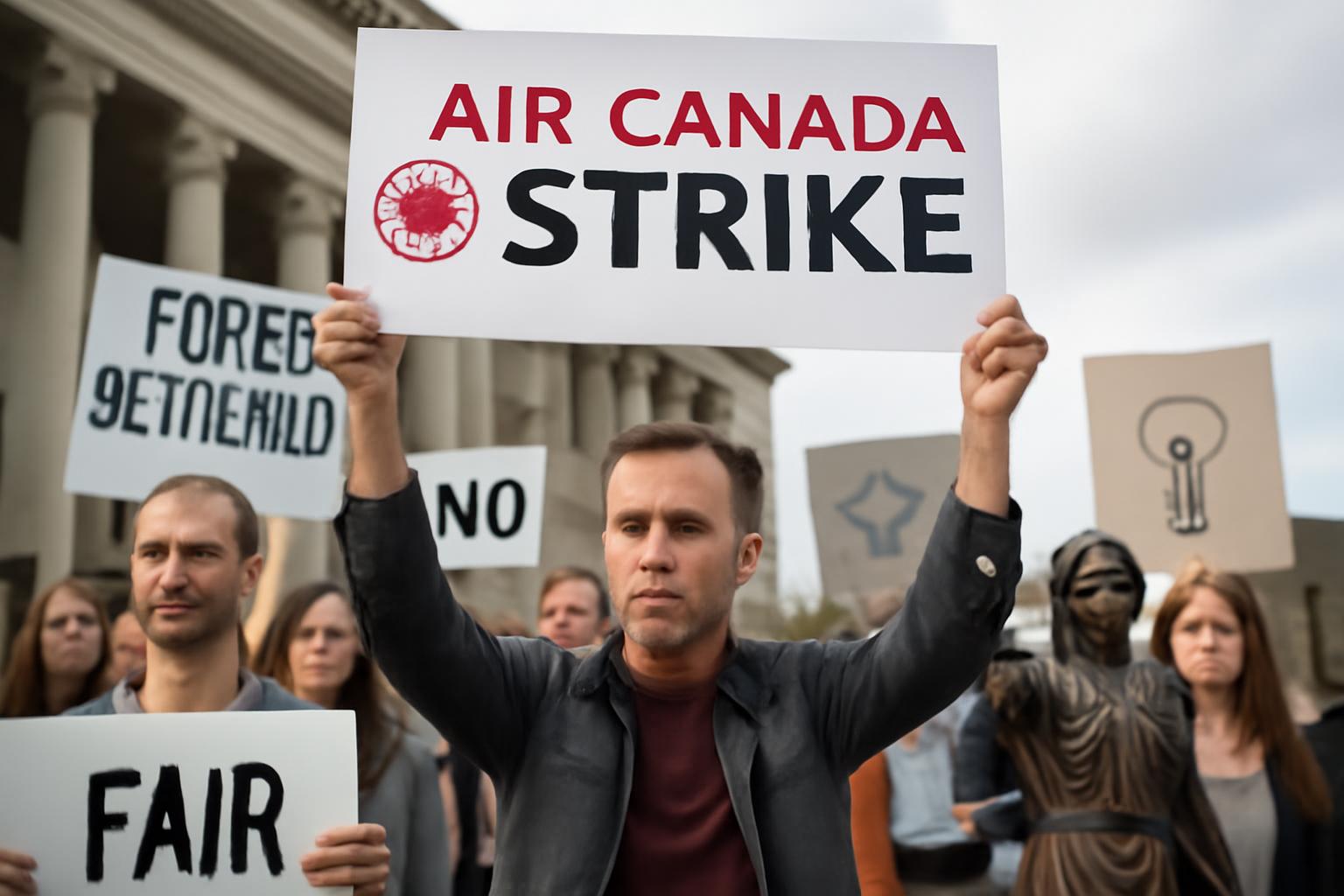Hundreds of Air Canada flight attendants are on strike, and the government has stepped in to urge an end to the disruption through arbitration. Labour officials directed the country’s industrial relations board to seek a return to work in order to safeguard the public interest and maintain orderly flows of travel. The strike has brought roughly 700 flights a day to a halt, with Air Canada normally carrying about 130,000 passengers daily. The state can appoint an ombudsperson to mediate, and Air Canada has asked for government involvement. By mid-August, travelers were told not to go to airports without a confirmed departure, and the aim was to normalise service over a matter of days. The disturbance largely spares Air Canada Jazz, PAL Airlines, and Air Canada Express. The union CUPE reports overwhelming support (99.7%) for the strike as flight attendants seek a substantial pay rise; presently they are paid only for the hours they fly, while ground duties remain unpaid. Air Canada has offered a 38% total wage increase over four years; the union rejects it, arguing that an 8% raise in the first year is far too modest given inflation.
What is happening here is a living portrait of how the mechanisms by which a modern economy coordinates countless individual plans are endangered when authority crowds out the very process that reveals truth about costs, productivity, and value. The strike and the political meddling to end it showcase a recurring temptation: to substitute gilt-edged assurances and centralized decision-making for the slow, imperfect, but vastly more informed adjustments that arise from voluntary bargaining among dispersed actors. The price system, which in its quiet way translates every scarce resource into information about what must be produced and at what cost, is an instrument of knowledge far grander than any board or minister’s decree. When the state claims the power to set or hurry a settlement, it crowds out the signals that would otherwise guide airlines, workers, and customers toward arrangements that reflect actual productivity and scarcity.
The union’s demand—ground work paid as part of a worker’s overall contribution, and a wage structure tied to value created rather than hours logged—speaks to a fundamental truth: living standards depend on sustainable increases in productivity. If the proposed 38% over four years can be financed only by inflating prices or increasing debt, then the very inflation that the union rightly frets against will erode the real purchasing power that wage gains seek to preserve. A wage increase is not an isolated act; it reverberates through prices, schedules, investment, and employment. In a market process, such effects are revealed not by fiat, but by the delicate adjustment of supply and demand across countless corners of the economy. To immunize a single industry from those adjustments—whether by arbitration, order, or emergency decree—renders the whole system more brittle, less capable of absorbing shocks, and less capable of learning what works.
There is a noble instinct in the call for “industrial peace,” but peace achieved by coercive settlement is fragile and misleading. It is peace of a kind that postpones the confrontation of real trade-offs between pay, productivity, and prices. The correct impulse is to trust that firms and workers, left to negotiate within the framework of law and the guidance of honest, transparent information, will discover more durable arrangements than a government blueprint can conjure. The temptation to substitute central direction for decentralized discovery is ancient and persistent; it has always proven ill-suited to the demands of a dynamic economy where knowledge is dispersed, local, and constantly evolving.
If this episode teaches anything, it should be that the strength of a free society lies not in the absence of conflict but in the resilience of voluntary cooperation under the rule of law. Arbitration can be a tool, but it cannot substitute for the signals that determine what is affordable, sustainable, and just in a world of limited resources and shifting circumstances. The path to enduring prosperity—and to reliable service for travelers and workers alike—requires anchored incentives, clear accountability, and a willingness to let wages, hours, and duties adjust in light of real-world productivity. In the end, it is the free interplay of prices, contracts, and competitive pressures—not the equilibrium imposed from above—that preserves both the liberty of individuals and the continuity of the services upon which a modern society depends.
